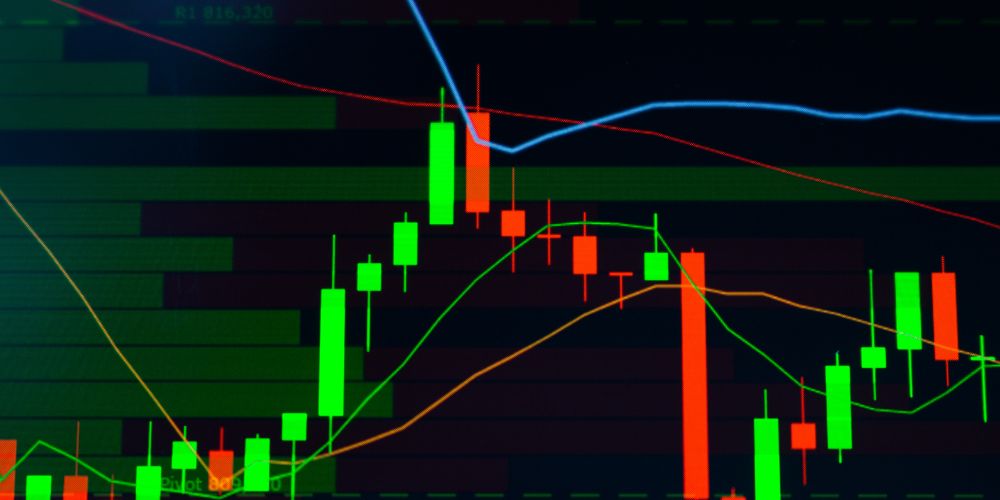7 Option Trading Mistakes to Avoid

Are you a new options trader? Just learning your steps in the brand new spectrum? Don’t worry. It’s typical for new options traders to experience overwhelm. One advantage of trading options is that it allows you a number of methods to profit from any changes in the underlying security.
However, the luxury of this diversity comes with a greater danger of making mistakes. This article’s objective is to raise awareness of some of the most typical options trading mistakes in order to empower you to make better choices.
What is Options Trading?
The derivatives category includes options. Options are securities that get their value from the underlying assets because they are a sort of derivative. Stocks, commodities, currencies, indexes, or even other financial securities are examples of these underlying assets. A financial agreement known as an option contract gives the investor the choice to either buy or sell a particular item at a predetermined price on a given date. Although it grants the option to purchase, there is no commitment to do so.
Some Mistakes You Do Not Want to Make in Options Trading
Options trading could be your new territory, and you would have to mind these speed bumps down this investment journey:
1. Make Sure You Choose the Right Dates
The same as with strategies, selecting an expiration date presents you with the challenge of having a plethora of options. The great news is that selecting the right expiration usually falls into place if you have an attitude.
2. Are the Estimations Strong?
The capacity to create a view of what you think might occur is a crucial element when starting to trade options. Technical and fundamental analysis, or a combination of the two, are two of the typical places to start when creating an outlook. Technical analysis is the procedure of evaluating the market activity (mostly price and volume) on a chart and searching for areas of support, resistance, and/or trends in order to spot potential buy/sell opportunities.
To determine a company’s value, the fundamental analysis examines a company’s financial statements, performance information, and current business trends. An outlook includes a time period for how long you think it will take your concept to succeed as well as a directional bias.
3) Volatility is Right There – Are You Overlooking It?
Future and option trading contains volatility; we hope you don’t ignore that. Implied volatility is a gauge of how much the market anticipates future volatility for certain security to be. Recognizing whether implied volatility is comparatively high or low is crucial since it affects how much the option premium will cost; when choosing which option strategy is best for your outlook, knowing if the premium is pricey or inexpensive is a crucial consideration.
If the possibilities are reasonably priced, it might be wiser to consider debit tactics, but if they are reasonably priced, it might be wiser to consider credit strategies.
4) Hope You Have an Exit Plan Ready
It’s important to control your emotions when trading options, just like it is when trading stocks, as you’ve surely heard before. This does not imply that you must overcome all of your fears. Much easier than that is to make a plan and follow it.
Even when things are going your way – you should have a backup plan. Select early on an upward exit, a downward exit, and your timelines for each exit.
Think to yourself, “What if I pull out too early and leave some upside on the table?” the old trader’s fear. Consider this response: What if you sleep better at night, generate profits more frequently, and experience fewer losses?
5) Have You Tried Some Newer Strategies?
Many options traders claim they would never sell in-the-money options or purchase options that were out-of-the-money. Until you find yourself in a trade that has moved against you, these absolutes seem absurd.
Every seasoned options trader has experienced it. You frequently feel you tempted to violate all sorts of personal norms when faced with this situation. But, you would have to explore. It is only when you try out some new strategies that you can step a little ahead of the game, irrespective of how the market scares you.
6) Are You Failing to Factor the Upcoming Events?
Even while not all market occurrences are predictable, when trading options, you must be aware of the dates of your underlying stock’s earnings and dividend payments.
7) Never be Clueless When you are Assigned Before Expiration
If you sell options, it’s a good idea to occasionally remind yourself that you could get assigned before the expiration date. Before it happens to them, a lot of novice options traders never consider the prospect of assignment. If you haven’t taken the assignment into account, it might be startling, especially if you’re using a multi-leg strategy – like the long or short spreads.
Conclusion
When you trade options, it brings along a wide number of considerations, and that is even applicable after the trade has been placed. So, make sure you know where you step before you put your foot down. Just keep in mind that if you have fear or greed, either of them could mostly lead you to irrational decisions that you aren’t the one making. The main advantage of having a trading plan is to eliminate the emotions from your trading. So, the most important key here is to set aside your emotions and start dealing with them more practically.
